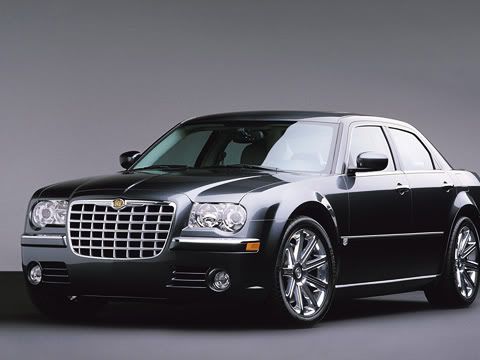
Obama to Chrysler: Sell yourself to Fiat
or we'll shoot this car.
The production of America: The Remake is bang on schedule. The president of the United States now holds the power of life and death over two of our traditional titans of car manufacturing. One day he tells the top dog at General Motors to hit the bricks. The next day he orders Chrysler to sell a large part of itself to Italy's Fiat. With every passing day, we move closer to a state-directed economy of the kind we were fighting a Cold War against not that long ago.
Aside from a quick injection of money into Chrysler, how is this supposed to help it? Fiat is not a respected brand. It probably survives only through government favoritism from the kind of political deal making that Italy is famous for. You rarely see Fiats on the road even in Europe outside Italy. Nor is Chrysler apt to sell many cars in Italy or Europe, until it comes up with a new line of vehicles designed for local conditions, which SUVs and big fat sedans are not.
Fiat was probably the wallflower of the international auto maker party, the only one Obama could get to dance with Chrysler. So what does the company bring to the table?
"The Italian automaker's cutting-edge technology in the production of fuel-efficient vehicles," says the story. This is hard to take seriously. I mean no disrespect to Italian engineers, who command the admiration of sports car and luxury brand buyers, and maybe they have come up with a nifty idea or two. But surely American engineers could do just as well if not better, provided Chrysler made a serious commitment. Which they should have done years ago, and still might today if the only alternative was bankruptcy with no federal skirts to hide under, a condition that concentrates the mind wonderfully.
So is this Obama's plan, to muscle troubled American companies into offering themselves to non-U.S. companies? Mergers and takeovers usually take place when the acquirer targets a successful company, not one that's just bought a cemetery plot. But Obama's idea of economics seems to be depending on the kindness of strangers, like China and Saudi Arabia, to keep buying U.S. debt. One source estimates we will have to sell $2 trillion worth of Treasury paper in the next year to fund bailouts.
Because of the size of Chrysler's debt and costly union benefits, many observers believe that Chrysler may first be piloted through bankruptcy to restructure the company and eliminate the bulk of these obligations. … Fiat would later be allowed to increase its stake to a maximum of 49%, with much of the rest being held by unions and lenders in exchange for restructuring Chrysler's debt and worker benefits."The conditions set by Obama." Jesus.
If Fiat wanted to increase its stake above 50%, Chrysler would first have to pay back its bail-out loans, according to the conditions set by Obama on Monday.
According to one critic of aid to the auto industry, Tennessee Republican Senator Bob Corker, the Obama approach is basically giving Chrysler away to Fiat.
Aside from a quick injection of money into Chrysler, how is this supposed to help it? Fiat is not a respected brand. It probably survives only through government favoritism from the kind of political deal making that Italy is famous for. You rarely see Fiats on the road even in Europe outside Italy. Nor is Chrysler apt to sell many cars in Italy or Europe, until it comes up with a new line of vehicles designed for local conditions, which SUVs and big fat sedans are not.
Fiat was probably the wallflower of the international auto maker party, the only one Obama could get to dance with Chrysler. So what does the company bring to the table?
"The Italian automaker's cutting-edge technology in the production of fuel-efficient vehicles," says the story. This is hard to take seriously. I mean no disrespect to Italian engineers, who command the admiration of sports car and luxury brand buyers, and maybe they have come up with a nifty idea or two. But surely American engineers could do just as well if not better, provided Chrysler made a serious commitment. Which they should have done years ago, and still might today if the only alternative was bankruptcy with no federal skirts to hide under, a condition that concentrates the mind wonderfully.
So is this Obama's plan, to muscle troubled American companies into offering themselves to non-U.S. companies? Mergers and takeovers usually take place when the acquirer targets a successful company, not one that's just bought a cemetery plot. But Obama's idea of economics seems to be depending on the kindness of strangers, like China and Saudi Arabia, to keep buying U.S. debt. One source estimates we will have to sell $2 trillion worth of Treasury paper in the next year to fund bailouts.




2 comments:
The idea that two failing companies can be put together to form one successful company is dismayingly common, even without "benefit" of government pressure. The theory is usually that there will be economies of scale and "synergies" in the combined operation. Generally, the analyses that are used to justify such conclusions fail to comprehend that there are such things as diseconomies of scale and negative synergies, not to mention transition problems that are generally much worse than anticipated.
See:
Mergers, acquisitions, princesses, and toads
and
The costs of synergy
also
Synergy, or just syn?
Fiat: fix it again Tony.
Post a Comment